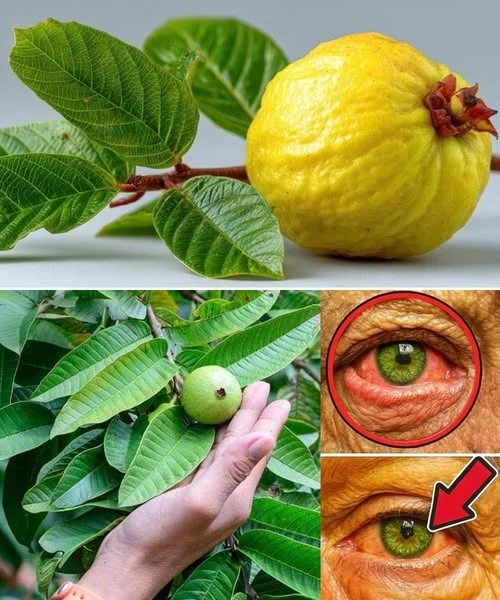3. Guava-infused eye-contour serum or cream 🧴
If you prefer a safer topical application (for the area around the eyes rather than the eyeball itself), look for cosmetic products that contain guava extract (or make a simple natural version). These help hydrate the skin around the eyes, reduce puffiness and apply the antioxidant benefit.
Usage:
-
Apply a small amount of the serum/cream on clean skin around the eyes, avoiding direct contact with the eyeball or eyelid margin.
-
Gently massage with fingertip for better absorption.
-
Ideal for reducing dark circles, swelling or fine lines via antioxidant support.
Essential Precautions for Eye-Safe Use
Although guava offers promising benefits, it must be used cautiously in the eye area to avoid complications. Here are key safety points:
-
Absolute sterility: Never use extracts or infusions directly in the eye unless you are sure they are sterile. Contaminants may cause serious infection.
-
Allergic reactions: Some people may be allergic to guava or its compounds. Before using any remedy, do a patch test on skin and stop use if you observe redness, itching or other sensitivity.
-
Stop if irritation arises: If you experience burning, intense redness, blurred vision or other discomfort after using a guava-based remedy, cease immediately and seek prompt medical advice.
-
Not a substitute for medical treatment: Guava remedies should not replace treatments for serious eye conditions such as glaucoma, cataracts, infections or retinal disease. Always consult an eye-care professional for diagnosis and care.
What Does the Science Say About Guava and Eyes?
It’s important to be clear: while guava shows nutritional promise, robust clinical studies on its use specifically for eye conditions are limited. Here’s a summary of what research reveals:
-
Guava is highly rich in vitamin C, antioxidants and other phytochemicals—these are known to help protect tissues (including ocular tissues) from oxidative stress.
-
A review notes guava supports eye health via vitamin A, beta-carotene and flavonoids, potentially reducing the risk of night blindness, macular degeneration and diabetic retinopathy.
Ver continuación en la página siguiente
-
One older study tested a guava-leaf decoction as a topical antibacterial for the eye in animals; although results looked promising, sterility issues were noted and the study is far from definitive for human use.
-
Official sources (e.g., WebMD) caution that while guava has nutritional benefits, there is no strong scientific evidence confirming use of guava for certain medical conditions of the eye.
In short: guava supports general eye-health via nutrition, but topical use for ocular therapy remains speculative and should be approached with caution.
Include Guava in Your Diet for Better Vision
Apart from topical remedies, eating guava regularly offers internal support for healthy eyes. Here are some ideas:
-
Add fresh guava to fruit salads, smoothie blends or as a snack.
-
Try a vision-supporting smoothie: blend one ripe guava, a small carrot (beta-carotene source), a handful of spinach (chlorophyll and lutein) and a glass of water. Consume once a day.
-
Aim for a variety of colourful fruits and vegetables—nutrients like vitamin C, beta-carotene, lutein and flavonoids work together to protect the eyes.
